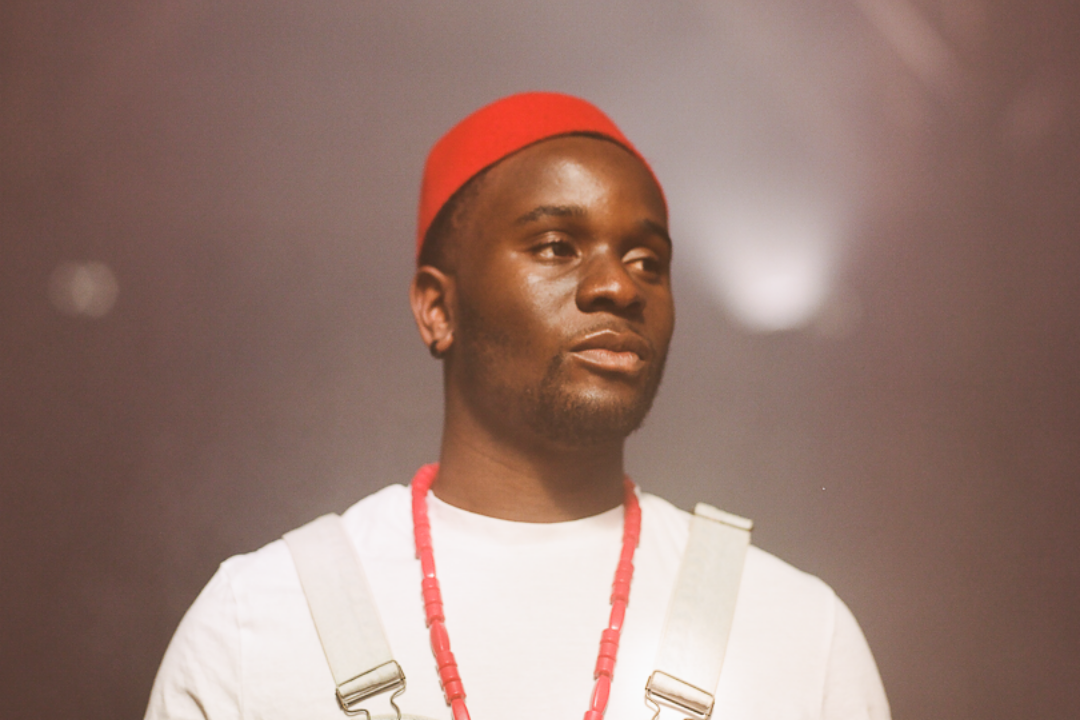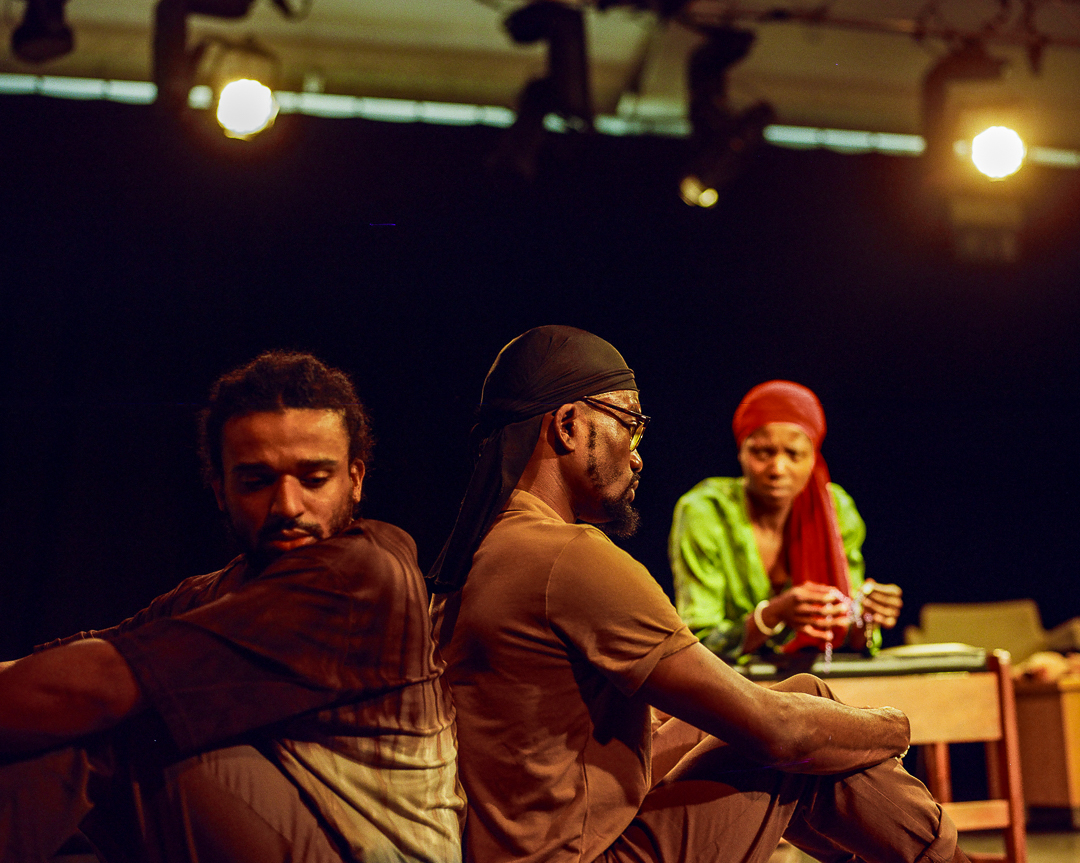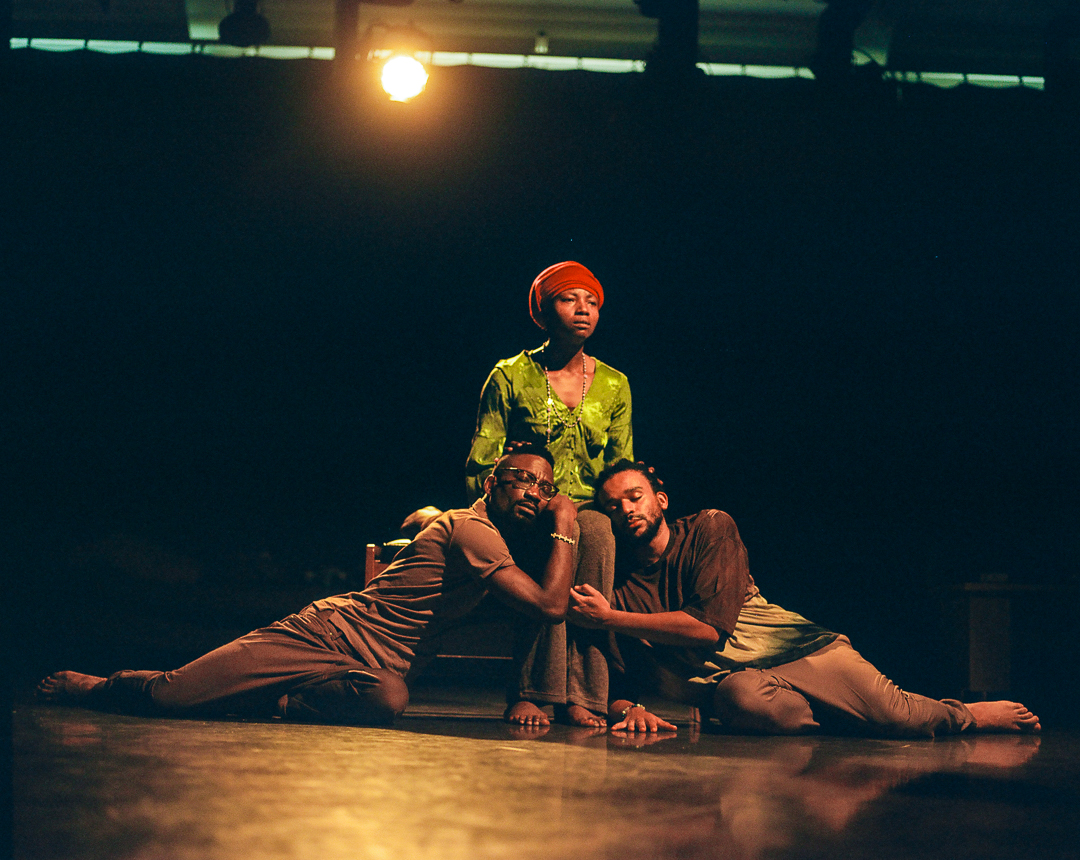
Sonny Nwachukwu, photo by Myah Jeffers
It’s a week (and three days) into my R&D period for my new project Eve and Cain that investigates the intersectionality of being black, gay and disabled. The butterflies before the process began were apparent as I prepared to delve into the unknown of the work. The topics of Eve and Cain are of course huge and draw on areas of my life which I am treading carefully, while being mindful through the process of the goals that I want to achieve. Every process is different but there is always something that pulls it all together, this time the something is my intersectionality. To make the process work for me in a world that doesn’t have a blueprint, I keep access at the heart it.
Picking a team as an emerging artist is always difficult, especially if people don’t know your work. Needing that validation, that the work is of quality – because of this it does usually start off rocky. Though numbers may not be as huge as the Beyoncé open audition in 2007, I always hold open auditions for my projects as I feel this is the best way to meet new people and engage fresh eyes on the project. On the other hand, I also work closely with people who I’ve built up a creative relationship and tend to do this to create more fruitful work. I have been very lucky with the people who I have worked with in both my projects, as there has always been a common ground of openness. The team needs to be able to take the script and/or movement as their own and that’s when a process usually flows right, fuelling sparks of creativity within the company.

Rehearsals for Eve and Cain
I primarily work in the sphere of Choreopoem, which was first coined by Ntozake Shange and her work For Colored Girls Who Have Considered Suicide / When the Rainbow Is Enuf. I was deeply inspired by the cohabitation of dance and spoken word/poetry in this piece and how it’s different to conventional theatre. The direct connection of speaking with your body is important to me and the movement mirrors this in my work – it’s conversational and speaks when words cannot. As a dancer and performer myself, this was my first proper way of expressing fully the language of my body. I feel that the words of movement are poetical and that’s why I’m currently engaging in this form to really tap into these mechanics.
The term ‘holding space’ has been a common way to work in the rehearsal room and I do try to stick to this to the best of my ability. In our rehearsal room we have a detailed check-in and check-out that doesn’t just look for a quick ‘yes I’m fine’ but makes the time to really discuss what’s going on for you and how we can facilitate this in the R&D/rehearsal. This isn’t for the check-in to turn into a counselling session. For me it is to build the team up, to cultivate a language of trust and being heard, which is the epitome of what I believe art and my process is about.

We had a drama-therapist come in to one of our sessions, which really helped to centre us. It held space for me and the company, and in doing this enabled us to effectively go deeper into the piece with the tools to keep everyone safe. It’s important to de-role at the end of the day, making clear the distinction between ourselves and the characters, so we can leave the rehearsal room on steady ground.
Doing things differently is the only way I know how to run a rehearsal space. Having a communication disability, I know what effect a full day of speaking has, which includes extreme tiredness and finding it hard to concentrate when making decisions for the piece. I incorporate many breaks throughout the day, some may see this as excessive but what I’ve learnt in the rehearsal room is that having these breaks also energises the other performers in the room. It helps the movement investigation as it encourages us as a company to be present. It gives the members of the company time fully for themselves, for what they need, and of course gives me the time to recalibrate.

Preparation for me is key to the success of a process, and that includes planning well in advance to ease any anxieties. All the preparation in the world can’t stop something from happening, which it has for me in this project as someone has had to pull out. This puts the process to the test, trusting in it and being able to have difficult yet needed conversations to better the process and the work. In this scenario it was about, do we hire a new person or re-edit the script? Interestingly, I already had concerns about a character not having a sufficient arc. I was able to rework the script, which now happens to flow better than before, and took another angle with the movement, focusing on the different structures the performers can now make working in this trio.
To conclude, the ability to work in a different way to the status quo, I believe, is the next step for us as artists. In being more accessible you open doors for more stories in the rehearsal room, which enriches the work and enriches the team.
About Sonny Nwachukwu +
Sonny Nwachukwu is a writer, director, and performer based in London. His work is multi-disciplinary spanning across writing, poetry, dance, theatre and anything that lies beyond. His work primarily focuses on the African and Caribbean Diaspora.
Sonny is a storyteller that incorporates dance and literature making his work relevant, unique, vibrant and thought-provoking. His academic background in Psychology informs much of his work and looks to create certain ideas in this area
Sonny received his dance training from authentic West African and dancehall teachers. He has performed with numerous Afrobeats and dancehall artists working across the UK and has performed at venues including Sadler’s Wells and SSE Wembley stadium.
In 2019 Sonny was awarded an Unlimited and Spirit of 2012 commission, to create his first full length work entitled Saturn Returns. Other current works, include Triple Threat (2019), Eve and Cain (2021) and (Re)Union (2021). Sonny is the founder of GatewayArts Productions.
